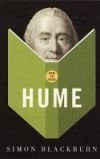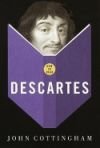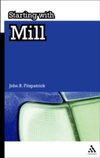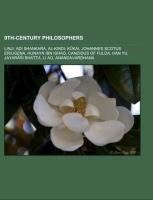
-
 Anglický jazyk
Anglický jazyk
9th-century philosophers
Autor: Source: Wikipedia
Source: Wikipedia. Pages: 23. Chapters: Linji, Adi Shankara, Al-Kindi, Kukai, Johannes Scotus Eriugena, Hunayn ibn Ishaq, Candidus of Fulda, Han Yu, Jayarasi Bha¿¿a, Li Ao, Anandavardhana. Excerpt: Adi Shankara (IAST: pronounced , (Sanskrit: , Malayalam:... Viac o knihe
Na objednávku, dodanie 2-4 týždne
12.32 €
bežná cena: 14.00 €
O knihe
Source: Wikipedia. Pages: 23. Chapters: Linji, Adi Shankara, Al-Kindi, Kukai, Johannes Scotus Eriugena, Hunayn ibn Ishaq, Candidus of Fulda, Han Yu, Jayarasi Bha¿¿a, Li Ao, Anandavardhana. Excerpt: Adi Shankara (IAST: pronounced , (Sanskrit: , Malayalam: ) (788 CE - 820 CE), also known as and , was an Indian philosopher from Kalady of present day Kerala who consolidated the doctrine of advaita vedanta. His teachings are based on the unity of the atman and brahman- non-dual brahman, in which brahman is viewed as nirguna brahman, brahman without attributes. Shankara travelled across India and other parts of South Asia to propagate his philosophy through discourses and debates with other thinkers. He is reputed to have founded four mathas ("monasteries"), which helped in the historical development, revival and spread of Advaita Vedanta. Adi Shankara is believed to be the organizer of the Dashanami monastic order and the founder of the Shanmata tradition of worship. His works in Sanskrit concern themselves with establishing the doctrine of advaita (nondualism). He also established the importance of monastic life as sanctioned in the Upanishads and Brahma Sutra, in a time when the Mimamsa school established strict ritualism and ridiculed monasticism. Shankara represented his works as elaborating on ideas found in the Upanishads, and he wrote copious commentaries on the Vedic canon (Brahma Sutra, principal upanishads and Bhagavad Gita) in support of his thesis. The main opponent in his work is the Mimamsa school of thought, though he also offers arguments against the views of some other schools like Samkhya and certain schools of Buddhism with which he had some familiarity. Traditional accounts of Adi Shankara's life can be found in the Shankara Vijayams, which are poetic works that contain a mix of biographical and legendary material, written in the epic style. The most important among these biographies are the (of Madhava, c. 14th century), the (of Cidvilasa, c. between 15th century and 17th century), and the (of the Kerala region, extant from c. 17th century). The birth place of Adi Shankara at Kalady Adi Sankara Keerthi Sthampa Mandapam, Kalady, KeralaShankara w
- Vydavateľstvo: Books LLC, Reference Series
- Rok vydania: 2018
- Formát: Paperback
- Rozmer: 246 x 189 mm
- Jazyk: Anglický jazyk
- ISBN: 9781155151229

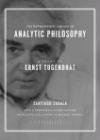



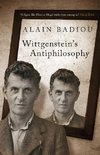

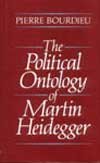
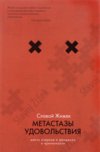
 Ruský jazyk
Ruský jazyk 